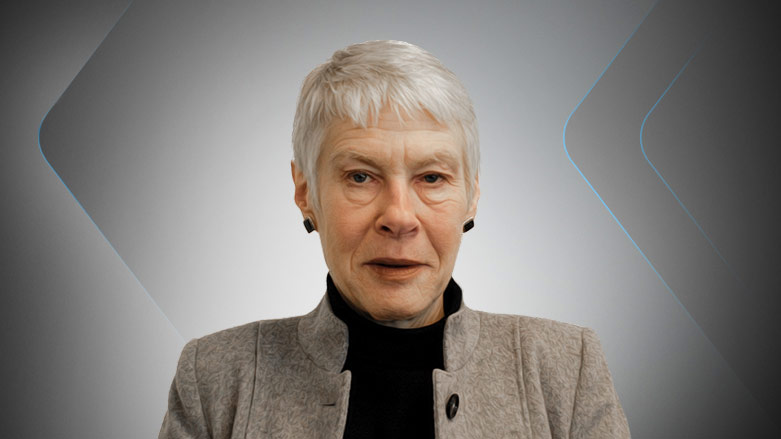Where does Foggy Bottom stand on Kurdish independence referendum?

WASHINGTON DC, United States (Kurdistan 24) - On Friday, State Department officials in Washington DC and Erbil significantly added to the confusion regarding US policy toward the upcoming referendum on Kurdish independence.
They claimed the existence of a phantom phone call between US Secretary of State, Rex Tillerson, and the President of the Kurdistan Region, Masoud Barzani. No such conversation occurred—although one had been scheduled.
The US consulate in Erbil even posted a “read-out” of the “conversation.” The spurious read-out appeared on the consulate’s official Facebook page. Dated August 4, it began “The Secretary spoke by phone yesterday” with Iraq’s Prime Minister.
The Secretary then “spoke by phone with Iraqi Kurdistan President Masoud Barzani and praised the bravery of the Peshmerga, thanking them for their vital role in the defeat of [the Islamic State (IS)] in Mosul.”
It continued,“The Secretary underlined the United States’ opposition to holding a referendum on independence, and conveyed continued US support for a unified, federal, and democratic Iraq.”
In other words: thanks for your service, but do not expect any gratitude from us.
That conversation, however, never occurred. Clearly, some officials hoped Tillerson would say that to Barzani.
It is difficult to understand the State Department’s position on the referendum, partly because it keeps shifting. There seems to be an argument within the US government. The White House looks more favorably on Kurdish political aspirations, and it is likely the other pole in the debate.
Following Barzani’s announcement setting September 25 as the date for the referendum, the State Department Spokesperson on June 8 said, “We support a unified, stable, democratic, and a federal Iraq.”
“Unified, stable, democratic, and federal Iraq” is a formal language for the “one-Iraq” policy.
When the question arose again on June 29, those words were absent. “Once Iraq has stabilized, and people can go back to their homes,” the State Department Spokesperson said, “a referendum, if Iraq decides to do that, if the Kurds decide to do that - that would be an internal Iraqi matter.” (Emphasis added.)
The State Department no longer opposed the referendum - it was mostly a matter of timing.
However, on Friday, Special Presidential Envoy, Brett McGurk, while giving a briefing in Washington, repeated the erroneous information posted by the Consulate in Erbil. He mentioned a conversation between Tillerson and Barzani, evidently thinking the two men had spoken, and he responded to a question from Kurdistan 24, saying “We do not believe this referendum is a good idea.”
Asked to clarify whether the problem was the timing, or the referendum itself, McGurk declined to do so. “We’re focused right now on this referendum that Kurdish authorities have said they want to hold on September 25th,” describing it as “something the US firmly, firmly opposes.”
Responding to questions from other Kurdish media, McGurk reiterated the one-Iraq policy, affirming: “We support a unified, federal Iraq.”
No briefing given by a US official over the past year was as bruising to Kurdish sensibilities as McGurk’s statements on Friday.
On Tuesday, Secretary Tillerson had explained the premise of US foreign policy in the Trump era: “Make America Great Again.” That means, Tillerson said, “How do we represent America’s interests first and foremost”?
Does the one-Iraq policy do that? Three retired US Army general officers, speaking at a Capitol Hill conference last Friday, sponsored by The Washington Times and Kurdistan24, repeatedly criticized the State Department and raised a compelling challenge to its one-Iraq policy: namely, Iran.
Iran has a lot of influence in Baghdad. There are over 100,000 “Iranian-led, Iranian trained, paramilitary Shiite units” in Iraq, Lt. Gen. Jay Garner told the conference.
As former Army Vice-Chief of Staff Gen. Ronald Griffith put it, Baghdad gets “its advice and support from the Iranians, while we pay the bill.” Brig Gen. Ernie Audino spoke similarly.
Garner cautioned that the Arabs, whether Shiite or Sunni, will not allow the US to keep bases in Iraq after IS is defeated. However, the Kurds will, as they - both people and government - are strongly pro-American.
So why not look to an independent Kurdistan as a strategic US ally?
The State Department, as its name suggests, is committed to states: dealing with and preserving them.
However, Col Norvell DeAtkine (USA, Ret.) suggests an additional reason for the myopia.
The Bureau of Near East Affairs reflects the views of Arab countries. Israel long suffered from that bias. It took decades for the US to recognize that its interests were not served by simply accommodating Arab demands on the Jewish state.
“New nations are emerging in the Middle East, while old ones are disappearing,” DeAtkine said. There will be problems, but “the concept of a Kurdistan has to come into being, sooner or later, and it might as well be sooner.”
Laurie Mylroie is a Washington DC correspondent for Kurdistan 24.
The views expressed in this article are those of the author and do not necessarily reflect the position of Kurdistan 24.
